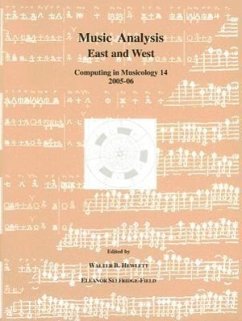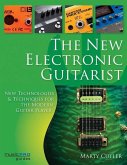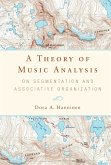Early Western music and the art music of the non-Western world both lack highly specified, standardized systems of notation. A serious impediment to the systematic study of early and non-Western music arises when a repertory has no extensive notational system, or multiple, non-standardized ones. In different ways, these conditions pertain to medieval and Renaissance music in the West, and to the art music of Asia, which has traditionally depended on oral tradition rather than notation. Computers hold great potential for the analysis of early music repertories and for the study of music that lies outside the Western tradition. This volume of "Computing in Musicology" considers approaches to the computer representation, interchange, and analysis of music that predates Western European art music, lies outside the bounds of Western European art music, or both. It describes efforts to provide new tools that may make such work more practical in the future, and it brings fresh insights to the repertories themselves. Initial articles in this issue also treat current work on data interchange involving XML, since interchangeability remains an important ingredient of representational designs for all kinds of music.Contributors come from the fields of musicology and ethnomusicology, audio and software engineering, and mathematics and computer science. They include Parag Chordia, Sachiko Deguchi, Annalisa Doneda, Michael Good, Christine Jeanneret, Arvindh Krishnaswamy, Panayotis Mavromatis, Laurent Pugin, Craig Stuart Sapp, Eleanor Selfridge-Field, Katsuhiko Shirai, Iman S. H. Suyoto, Alexandra L. Uitdenbogerd, and Joshua Veltman.
Hinweis: Dieser Artikel kann nur an eine deutsche Lieferadresse ausgeliefert werden.
Hinweis: Dieser Artikel kann nur an eine deutsche Lieferadresse ausgeliefert werden.








![East Indian Music [With CD] East Indian Music [With CD]](https://bilder.buecher.de/produkte/59/59662/59662965m.jpg)